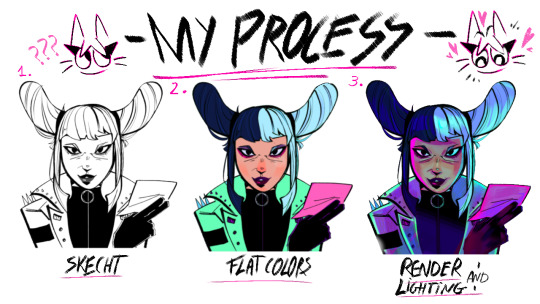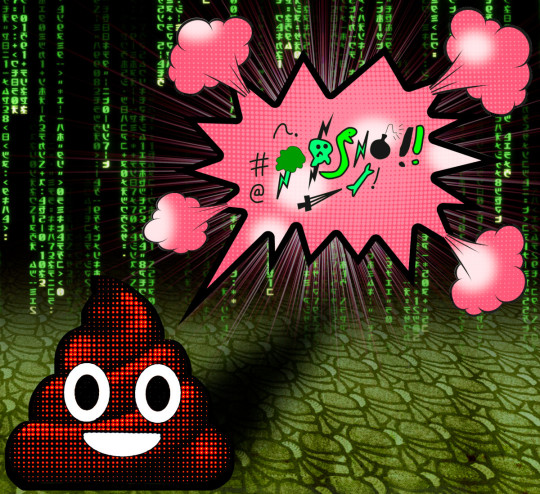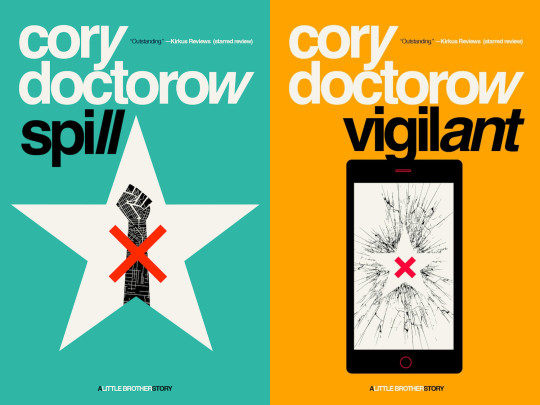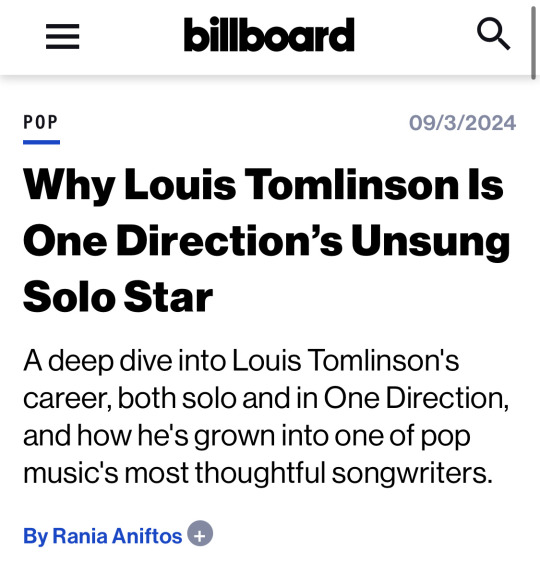#digital stars 2019
Explore tagged Tumblr posts
Text



Some of the art from Digital Stars Miku & Gumi in 2019! Illustrations by 回る酸素 (Mawaru Sanso/mwrsan), そうだ (Souda), and のう (nou/nounoknown), respectively.
#...Sorry these are jpegs that's how they came i hate it too. not sure how long i've been jpeg posting. apologies retroactively for all#gumi megpendium#gumi vocaloid#gumi megpoid#digital stars#digital stars 2019#official art#vocaloid#hatsune miku#megpoid gumi#Not back to consistent gumi postings quite yet but!!! here's one for now
18 notes
·
View notes
Text
VILE Headshots part 1

Individual portraits under the cut
Le Chevre

Paper Star

Neal the Eel

Crackle

Dash Haber V1 and V2


Tigress

#art#kyayamoart#digital art#my art#illustration#carmen sandiego#digital illustration#carmen sandiego 2019#graham calloway#cs crackle#cs paper star#paper star#neal the eel#cs neal the eel#dash haber#tigress#cs tigress#le chevre#cs le chevre
260 notes
·
View notes
Text

not magpod related but i recently got reminded of carmen sandiego and i HAD to draw paper star
#coolest character ever i swear#paper star#carmen sandiego#carmen sandiego paper star#carmen sandeigo 2019#carmen sandeigo netflix#carmen sandeigo fanart#paper star fanart#fanart#art#digital art#digital drawing#do not steal
184 notes
·
View notes
Text


#carmen sandeigo netflix#paper star#carmen sandeigo 2019#carmen sandiego#carmen sandeigo fanart#concept art#illustration#fanart#digital art#digital drawing#background
231 notes
·
View notes
Text
Happy 1 year Tumblr! 🎉
Thank you so much especially to the Carmen Sandiego fandom for the support on my artwork! You guys all mean a lot to me and cheers to another year of art! 🎉🎉🎉⭐️⭐️⭐️


Opening up drawing requests in my inbox! 📥 Depending on how much I’ll get I’ll try to get to them all! Request anything it doesn’t have to be Carmen Sandiego related! Ships, silly stuff, girlification!
#artists on tumblr#art#artwork#lgbtq#1 year tumblrversary#1 year anniversary#tumblr milestone#digital artist#small artist#neal the eel#carmen sandeigo 2019#carmen sandeigo fanart#le chevre#el topo#tigress#paper star#cs crackle#dash haber#mime bomb#drawing#drawing requests#qna#inbox open#inbox
100 notes
·
View notes
Text

Return of the Star Eater
#illustration#monstergirl#alien#oc#original character#digital art#artists on tumblr#original art#drawing#this is straight up a redraw of one of my favourite arts i made back in 2019#ive wanted to do a lil updated version for a while bc back then i guess i couldnt be bothered to even color in the lines properly#and tbh i respect past me for that but i love star eater so much she deserves a fresh draw
219 notes
·
View notes
Text

A Supernova (pl.: supernovae or supernovas) — is a powerful and luminous explosion of a star. A supernova occurs during the last evolutionary stages of a massive star, or when a white dwarf is triggered into runaway nuclear fusion. The peak optical luminosity of a supernova can be comparable to that of an entire galaxy before fading over several weeks or months.
#i think jet became a killjoy not so long ago before his death in 2019#and i think he lost his eye somewhere at the beginning#supernova#he shone so brightly yet so suddenly faded#he's a star#art#digital art#mcr#fanart#my chemical romance#art tag#jet star#ray toro#mcr fanart#danger days#danger days the true lives of the fabulous killjoys#the fabulous four#the true lives of the fabulous killjoys
45 notes
·
View notes
Text

WOOO ART AGAIN!!!!!!!!!!!!!!!!!!!! ok so i took requests on the kirby discord server i'm in and OH BOY IT WAS SUPER FUNNN
Each OC (besides Chilidog/WolfWrath from KRBAY, and my oc Mimi) belongs to:
Eliza by @pixbit
Kurabe by @kachikirby
Stellora by @sourghostsoda
Rae by @matchamiel
Lumen by @nautical-nova
Dex by @clairetimes
#i'm so proud of myself ngl#cuz back in like idk 2018-2019 i used to take requests but never actually make them#i decided to take requests and get over my fear of “disappointing” others by not drawing them or sumth#and man I LOVEEE HOW i didn't give up even when i went through some difficulties#it was also some commission practice before actually taking commissions so yippee :D#my art#kirby#kirby nintendo#kirby of the stars#kirby ocs#doodle sheet#doodles#art#artists on tumblr#fanart#digital art#artwork#art requests#kots#nintendo#others ocs#jlan#jazzlan#jazzlanart#chilidog#wolfwrath#hoshi no kaabii#kirby oc#doodle#kirby right back at ya
38 notes
·
View notes
Text

Screenshot or hold for a cool Paper Star outfit :]
#flash warning#flashing gif#fast gif#my art#carmen sandiego#artists on tumblr#digital art#carmen sandiego 2019#carmen sandiego netflix#paper star#cs paper star
33 notes
·
View notes
Text
art school, art lesson
art teacher: wow you drew this skeletal hand so quick and good without help, so unusual for you
me:

#i straight up just sat there having flashbacks to everything i experienced in this fandom#i have rocky relationship with undertale especially au fandom#whether you believe me or not i started drawing humans only in 2018-2019#in my 6 years of drawing experience 3 i drew really bad looking skeletons#i think you can see where the cheek thing started#mention of undertale au#the reason why i have rocky relationship with undertale au fandom is really simple#i was into gay selfcest skeleton fanfiction.#i traumatized myself beyond ever healing#fun fact i actually discovered the existence of omegaverse(my fav genre) there#you can judge my taste all you want i know things i like are great#but yeah i didnt know i was actually good at drawing skeleton hands#shitpost#my art#digital art#doodle#i discovered gradient maps in firealpaca where i draw sometimes and its awesome#that is how i actually look yes#i dont wear pretty clothes im dressed for funeral 24/7 and even look like zombie since early teen age#despite that i also wear yellow clown boots and smiley star earrings
10 notes
·
View notes
Text




CENTRAL SIGHTS & CHARACTERS OF THE TECH NOIR UNDERWORLD OF GALACTIC CENTER.
PIC(S) INFO: Resolution at 1391x1482 -- Mega spotlight on detail crops from the "STAR WARS"/"Blade Runner" digital art mashup titled, "A Dark Jedi and a Renegade Princess," c. 2016, artwork by Jeronimo Gomez.
Source: https://jeronimogomez.artstation.com/projects/9m808o.
#STAR WARS#Blade Runner#Sci-fi Art#Sci-fi#Digital Art#Tech Noir#Tech-Noir#Cyberpunk#Blade Runner 1982#Sci-fi Fri#Los Angeles 2019#Neon Signs#Blade Runner Franchise#Threepio#R2-D2#Blade Runner Movie 1982#80s Sci-fi#80s Movies#Bounty hunter#Artoo#Droids#Galactic Center#STAR WARS/Blade Runner#Luke Skywalker#STAR WARS Blade Runner#Blade Runner 1982 Movie#STAR WARS Art#Neon#Coruscant Underworld#Original Trilogy
0 notes
Photo
Status Post #11279 (reblog): I feel the same on this.

they’re both have dominant personalities it was hard to think they would be softies…but maybe in private (/ε\*)
#cs paper star#cs tigress#tigress x paper star#paper star x tigress#carmen sandeigo netflix#carmen sandeigo fanart#cs fanart#cs sheena#paper tiger#carmen sandeigo 2019#cs 2019#digital art#wlw ship#carmen sandiego#carmen sandiego fanart#carmen sandiego 2019#papertiger#startiger
63 notes
·
View notes
Text




🧩Today's Miku figure is:🧩
Animate Cafe Miku Expo Digital Stars 2019 ver. 1/8 (2020)
#hatsune miku#vocaloid#vocal synth#anime figure#project diva#vocaloid miku#anime figures#scale figure#animate cafe#daily figure
436 notes
·
View notes
Text
Dirty words are politically potent

On OCTOBER 23 at 7PM, I'll be in DECATUR, presenting my novel THE BEZZLE at EAGLE EYE BOOKS.

Making up words is a perfectly cromulent passtime, and while most of the words we coin disappear as soon as they fall from our lips, every now and again, you find a word that fits so nice and kentucky in the public discourse that it acquires a life of its own:
http://meaningofliff.free.fr/definition.php3?word=Kentucky
I've been trying to increase the salience of digital human rights in the public imagination for a quarter of a century, starting with the campaign to get people to appreciate that the internet matters, and that tech policy isn't just the delusion that the governance of spaces where sad nerds argue about Star Trek is somehow relevant to human thriving:
https://www.newyorker.com/magazine/2010/10/04/small-change-malcolm-gladwell
Now, eventually people figured out that a) the internet mattered and, b) it was going dreadfully wrong. So my job changed again, from "how the internet is governed matters" to "you can't fix the internet with wishful thinking," for example, when people said we could solve its problems by banning general purpose computers:
https://memex.craphound.com/2012/01/10/lockdown-the-coming-war-on-general-purpose-computing/
Or by banning working cryptography:
https://memex.craphound.com/2018/09/04/oh-for-fucks-sake-not-this-fucking-bullshit-again-cryptography-edition/
Or by redesigning web browsers to treat their owners as threats:
https://www.eff.org/deeplinks/2017/09/open-letter-w3c-director-ceo-team-and-membership
Or by using bots to filter every public utterance to ensure that they don't infringe copyright:
https://www.eff.org/deeplinks/2018/09/today-europe-lost-internet-now-we-fight-back
Or by forcing platforms to surveil and police their users' speech (aka "getting rid of Section 230"):
https://www.techdirt.com/2020/06/23/hello-youve-been-referred-here-because-youre-wrong-about-section-230-communications-decency-act/
Along the way, many of us have coined words in a bid to encapsulate the abstract, technical ideas at the core of these arguments. This isn't a vanity project! Creating a common vocabulary is a necessary precondition for having the substantive, vital debates we'll need to tackle the real, thorny issues raised by digital systems. So there's "free software," "open source," "filternet," "chat control," "back doors," and my own contributions, like "adversarial interoperability":
https://www.eff.org/deeplinks/2019/10/adversarial-interoperability
Or "Competitive Compatibility" ("comcom"), a less-intimidatingly technical term for the same thing:
https://www.eff.org/deeplinks/2020/12/competitive-compatibility-year-review
These have all found their own niches, but nearly all of them are just that: niche. Some don't even rise to "niche": they're shibboleths, insider terms that confuse and intimidate normies and distract from the real fights with semantic ones, like whether it's "FOSS" or "FLOSS" or something else entirely:
https://opensource.stackexchange.com/questions/262/what-is-the-difference-between-foss-and-floss
But every now and again, you get a word that just kills. That brings me to "enshittification," a word I coined in 2022:
https://pluralistic.net/2022/11/28/enshittification/#relentless-payola
"Enshittification" took root in my hindbrain, rolling around and around, agglomerating lots of different thoughts and critiques I'd been making for years, crystallizing them into a coherent thesis:
https://pluralistic.net/2023/01/21/potemkin-ai/#hey-guys
This kind of spontaneous crystallization is the dividend of doing lots of work in public, trying to take every half-formed thought and pin it down in public writing, something I've been doing for decades:
https://pluralistic.net/2021/05/09/the-memex-method/
After those first couple articles, "enshittification" raced around the internet. There's two reasons for this: first, "enshittification" is a naughty word that's fun to say. Journalists love getting to put "shit" in their copy:
https://www.nytimes.com/2024/01/15/crosswords/linguistics-word-of-the-year.html
Radio journalists love to tweak the FCC with cheekily bleeped syllables in slightly dirty compound words:
https://www.wnycstudios.org/podcasts/otm/projects/enshitification
And nothing enlivens an academic's day like getting to use a word like "enshittification" in a journal article (doubtless this also amuses the editors, peer-reviewers, copyeditors, typesetters, etc):
https://scholar.google.com/scholar?hl=en&as_sdt=0%2C5&q=enshittification&btnG=&oq=ensh
That was where I started, too! The first time I used "enshittification" was in a throwaway bad-tempered rant about the decay of Tripadvisor into utter uselessness, which drew a small chorus of appreciative chuckles about the word:
https://twitter.com/doctorow/status/1550457808222552065
The word rattled around my mind for five months before attaching itself to my detailed theory of platform decay. But it was that detailed critique, coupled with a minor license to swear, that gave "enshittification" a life of its own. How do I know that the theory was as important as the swearing? Because the small wave of amusement that followed my first use of "enshittification" petered out in less than a day. It was only when I added the theory that the word took hold.
Likewise: how do I know that the theory needed to be blended with swearing to break out of the esoteric realm of tech policy debates (which the public had roundly ignored for more than two decades)? Well, because I spent two decades writing about this stuff without making anything like the dents that appeared once I added an Anglo-Saxon monosyllable to that critique.
Adding "enshittification" to the critique got me more column inches, a longer hearing, a more vibrant debate, than anything else I'd tried. First, Wired availed itself of the Creative Commons license on my second long-form article on the subject and reprinted it as a 4,200-word feature. I've been writing for Wired for more than thirty years and this is by far the longest thing I've published with them – a big, roomy, discursive piece that was run verbatim, with every one of my cherished darlings unmurdered.
That gave the word – and the whole critique, with all its spiky corners – a global airing, leading to more pickup and discussion. Eventually, the American Dialect Society named it their "Word of the Year" (and their "Tech Word of the Year"):
https://americandialect.org/2023-word-of-the-year-is-enshittification/
"Enshittification" turns out to be catnip for language nerds:
https://becauselanguage.com/90-enpoopification/#transcript-60
I've been dragged into (good natured) fights over the German, Spanish, French and Italian translations for the term. When I taped an NPR show before a live audience with ASL interpretation, I got to watch a Deaf fan politely inform the interpreter that she didn't need to finger-spell "enshittification," because it had already been given an ASL sign by the US Deaf community:
https://maximumfun.org/episodes/go-fact-yourself/ep-158-aida-rodriguez-cory-doctorow/
I gave a speech about enshittification in Berlin and published the transcript:
https://pluralistic.net/2024/01/30/go-nuts-meine-kerle/#ich-bin-ein-bratapfel
Which prompted the rock-ribbed Financial Times to get in touch with me and publish the speech – again, nearly verbatim – as a whopping 6,400 word feature in their weekend magazine:
https://www.ft.com/content/6fb1602d-a08b-4a8c-bac0-047b7d64aba5
Though they could have had it for free (just as Wired had), they insisted on paying me (very well, as it happens!), as did De Zeit:
https://www.zeit.de/digital/internet/2024-03/plattformen-facebook-google-internet-cory-doctorow
This was the start of the rise of enshittification. The word is spreading farther than ever, in ways that I have nothing to do with, along with the critique I hung on it. In other words, the bit of string that tech policy wonks have been pushing on for a quarter of a century is actually starting to move, and it's actually accelerating.
Despite this (or more likely because of it), there's a growing chorus of "concerned" people who say they like the critique but fret that it is being held back because you can't use it "at church or when talking to K-12 students" (my favorite variant: "I couldn't say this at a NATO conference"). I leave it up to you whether you use the word with your K-12 students, NATO generals, or fellow parishoners (though I assure you that all three groups are conversant with the dirty little word at the root of my coinage). If you don't want to use "enshittification," you can coin your own word – or just use one of the dozens of words that failed to gain public attention over the past 25 years (might I suggest "platform decay?").
What's so funny about all this pearl-clutching is that it comes from people who universally profess to have the intestinal fortitude to hear the word "enshittification" without experiencing psychological trauma, but worry that other people might not be so strong-minded. They continue to say this even as the most conservative officials in the most staid of exalted forums use the word without a hint of embarrassment, much less apology:
https://www.independent.ie/business/technology/chairman-of-irish-social-media-regulator-says-europe-should-not-be-seduced-by-mario-draghis-claims/a526530600.html
I mean, I'm giving a speech on enshittification next month at a conference where I'm opening for the Secretary General of the United Nations:
https://icanewdelhi2024.coop/welcome/pages/Programme
After spending half my life trying to get stuff like this into the discourse, I've developed some hard-won, informed views on how ideas succeed:
First: the minor obscenity is a feature, not a bug. The marriage of something long and serious to something short and funny is a happy one that makes both the word and the ideas better off than they'd be on their own. As Lenny Bruce wrote in his canonical work in the subject, the aptly named How to Talk Dirty and Influence People:
I want to help you if you have a dirty-word problem. There are none, and I'll spell it out logically to you.
Here is a toilet. Specifically-that's all we're concerned with, specifics-if I can tell you a dirty toilet joke, we must have a dirty toilet. That's what we're all talking about, a toilet. If we take this toilet and boil it and it's clean, I can never tell you specifically a dirty toilet joke about this toilet. I can tell you a dirty toilet joke in the Milner Hotel, or something like that, but this toilet is a clean toilet now. Obscenity is a human manifestation. This toilet has no central nervous system, no level of consciousness. It is not aware; it is a dumb toilet; it cannot be obscene; it's impossible. If it could be obscene, it could be cranky, it could be a Communist toilet, a traitorous toilet. It can do none of these things. This is a dirty toilet here.
Nobody can offend you by telling a dirty toilet story. They can offend you because it's trite; you've heard it many, many times.
https://www.dacapopress.com/titles/lenny-bruce/how-to-talk-dirty-and-influence-people/9780306825309/
Second: the fact that a neologism is sometimes decoupled from its theoretical underpinnings and is used colloquially is a feature, not a bug. Many people apply the term "enshittification" very loosely indeed, to mean "something that is bad," without bothering to learn – or apply – the theoretical framework. This is good. This is what it means for a term to enter the lexicon: it takes on a life of its own. If 10,000,000 people use "enshittification" loosely and inspire 10% of their number to look up the longer, more theoretical work I've done on it, that is one million normies who have been sucked into a discourse that used to live exclusively in the world of the most wonkish and obscure practitioners. The only way to maintain a precise, theoretically grounded use of a term is to confine its usage to a small group of largely irrelevant insiders. Policing the use of "enshittification" is worse than a self-limiting move – it would be a self-inflicted wound. As I said in that Berlin speech:
Enshittification names the problem and proposes a solution. It's not just a way to say 'things are getting worse' (though of course, it's fine with me if you want to use it that way. It's an English word. We don't have der Rat für englische Rechtschreibung. English is a free for all. Go nuts, meine Kerle).
Finally: "coinage" is both more – and less – than thinking of the word. After the American Dialect Society gave honors to "enshittification," a few people slid into my mentions with citations to "enshittification" that preceded my usage. I find this completely unsurprising, because English is such a slippery and playful tongue, because English speakers love to swear, and because infixing is such a fun way to swear (e.g. "unfuckingbelievable"). But of course, I hadn't encountered any of those other usages before I came up with the word independently, nor had any of those other usages spread appreciably beyond the speaker (it appears that each of the handful of predecessors to my usage represents an act of independent coinage).
If "coinage" was just a matter of thinking up the word, you could write a small python script that infixed the word "shit" into every syllable of every word in the OED, publish the resulting text file, and declare priority over all subsequent inventive swearers.
On the one hand, coinage takes place when the coiner a) independently invents a word; and b) creates the context for that word that causes it to escape from the coiner's immediate milieu and into the wider world.
But on the other hand – and far more importantly – the fact that a successful coinage requires popular uptake by people unknown to the coiner means that the coiner only ever plays a small role in the coinage. Yes, there would be no popularization without the coinage – but there would also be no coinage without the popularization. Words belong to groups of speakers, not individuals. Language is a cultural phenomenon, not an individual one.
Which is rather the point, isn't it? After a quarter of a century of being part of a community that fought tirelessly to get a serious and widespread consideration of tech policy underway, we're closer than ever, thanks, in part, to "enshittification." If someone else independently used that word before me, if some people use the word loosely, if the word makes some people uncomfortable, that's fine, provided that the word is doing what I want it to do, what I've devoted my life to doing.
The point of coining words isn't the pilkunnussija's obsession with precise usage, nor the petty glory of being known as a coiner, nor ensuring that NATO generals' virgin ears are protected from the word "shit" – a word that, incidentally, is also the root of "science":
https://www.arrantpedantry.com/2019/01/24/science-and-shit/
Isn't language fun?

Tor Books as just published two new, free LITTLE BROTHER stories: VIGILANT, about creepy surveillance in distance education; and SPILL, about oil pipelines and indigenous landback.


If you'd like an essay-formatted version of this post to read or share, here's a link to it on pluralistic.net, my surveillance-free, ad-free, tracker-free blog:
https://pluralistic.net/2024/10/14/pearl-clutching/#this-toilet-has-no-central-nervous-system
302 notes
·
View notes
Text


With the first quarter of the 21st century coming to an end, Billboard has been looking back on the 25 Greatest Pop Stars of the Past 25 Years. Below, we take a deeper look into the solo career of Louis Tomlinson — one of the members of our No. 22 pop stars, One Direction — and how his songwriting, originally honed in 1D, has helped him develop into one of the group’s strongest breakout artists.
When One Direction officially went on hiatus in 2015, Zayn Malik dropped Mind of Mine in 2016, Harry Styles’ eponymous LP dropped in 2017, Niall Horan followed with Flicker later that year and Liam Payne’s First Time EP arrived in 2018. Louis Tomlinson, however, took his time with releasing a full project – and entered an era of healing and self-discovery that saw him realizing his potential as one of 1D’s most self-actualized artists, even if not necessarily the starriest.
Even before going solo, Tomlinson showed he was meant for breakthrough success while in One Direction. Longtime Directioners know that Tomlinson wrote more songs in One Direction than any other member, penning long standing hits including “Perfect,” “History” and “Fool’s Gold” and proving his fortitude as a songwriter who understands lyrical cleverness and crafting the indescribably catchy refrains necessary to produce arena-ready hits. Beyond his musical abilities, Tomlinson’s sense of humor and friendship with fellow 1D members also ensured fans had a soft spot for him.
However, when he did go solo, the road was slippery at first. He teamed up with Steve Aoki for his first solo release “Just Hold On” in December 2016, and just three days before its release, Tomlinson’s mother died of leukemia. He still took the stage to perform the song on The X Factor, the first public testament to the star’s strength and dedication to his musical craft.
Tomlinson’s resilience amid adversity continued as he navigated the music industry. The star signed with Epic Records in 2017 and released a few singles – including “Miss You” and the Bebe Rexha and Digital Farm Animals-assisted “Back to You.” While the infectious hooks to both tracks could have easily solidified Tomlinson as a pop mainstay, the two singles didn’t perform as well as expected on the charts: “Just Hold On” peaked at No. 52 on the Billboard Hot 100 and “Back to You” hit No. 40, while “Miss You” missed the chart altogether. Ultimately, a full-length album never materialized with Epic Records.
youtube
Tomlinson shortly got back on his feet, as he always does, and signed with Arista Records in 2019 – where he honed his talent as a songwriter, this time feeling comfortable enough to tackle more vulnerable topics in his music. His first release under the label was “Two of Us,” a heart-wrenching tribute to his late mother. “I know you’ll be looking down/ Swear I’m gonna make you proud/ I’ll be living one life for the two of us,” he sings in the chorus, giving a glimpse into what would soon become a musical career full of honesty and vulnerability.
Unfortunately, shortly after its release, another hardship struck Tomlinson’s life when his 18-year-old sister Fizzy died of an accidental overdose. Both the release of “Two of Us” and the tragedy that followed showed just how close Tomlinson’s community of fans is, as they showered him with online love and support in the months that followed.
After taking some much-deserved time to heal, he announced in August of that year that his debut solo album was on its way – and shortly after, he released a follow-up single, the rock-leaning, drumline-driven “Kill My Mind.” Tomlinson admitted that he finally found his stride. “I’m actually really proud and relieved to finally find my place, find my lane musically,” he told Hits Radio Breakfast at the time, indicating a moment of relief amid his turbulent few years.
youtube
Tomlinson’s debut solo album, Walls, arrived in January 2020 and while it hit the Billboard 200‘s top 10, it was met with mixed reviews from critics, who suggested that the heart he wanted to portray wasn’t quite there. His growth outside of commercial success proved otherwise, as he had been spending the past few years building a solid identity not only as an artist, but also as a person. While some of the other One Direction alums are still finding their footing with their solo sounds to this day, Tomlinson grew strongly into an instrumentation-focused pop-rock artist whose lyrics go beyond the cookie cutter sentiments you might expect from a former boy band member.
And soon, all the hard work – both personally and musically – finally paid off. Faith in the Future, his 2022 sophomore solo album, debuted at No. 1 on the Official U.K. Albums Chart. In the United States, Faith In The Future debuted at No. 2 on Billboard’s Top Album Sales chart, and at No. 5 on the all-genre Billboard 200, his highest-charting set yet on both tallies. The album’s success, as well his sold-out live shows on its accompanying tour, not only showed the still-standing Directioner devotion to Tomlinson, but also made it clear that he picked up a slew of new fans along the way.
Tomlinson’s self-awareness was evident on the album’s lead single, “Bigger Than Me.” “When somebody told me I would change/ I was afraid, I don’t know why/ ‘Cause so does the world outside, I’ve realized/ It’s bigger than me,” he sings – indicating that the key for solo success all along was being himself, and letting go of the pressure that fame brings.
While Tomlinson has still yet to score the major chart hits stateside that his 1D bandmates essentially achieved right away – and has been more focused on his 28 clothing line the past couple years – he’s proven that he doesn’t need traditional pop crossover success to have a bright future ahead of him. With another couple albums and tours that continue to establish his identity and expand his artistry, it wouldn’t be shocking to see him making the jump to arenas in the not-distant future. Louis’ solo career may not have gotten off to the perfect start, but it just might end up being perfect for him in the long-term anyway.
279 notes
·
View notes
Text
youtube
The Miraculous Horror of Stop Motion
From the same artform that brought you Coraline and Rudolph the Red-Nosed Reindeer, comes three stories that evoke the existential fear of art.
Original Music by Molly Noise
Bibliography below
Atrocity Guide. “The Animators Who’ve Spent 40 Years on a Single Film.” YouTube, 9 Oct. 2021, www.youtube.com/watch?v=73hip3pz0Xs&pp=ygUMdGhlIG92ZXJjb2F0. Accessed 19 June 2024.
Brubaker, Charles. “The Japanese Studios of Rankin/Bass.” Cartoon Research, Jerry Beck, 14 Apr. 2014, cartoonresearch.com/index.php/the-japanese-studios-of-rankinbass/.
Bute, Paris. “Introduction to “a Rankin/Bass Retrospective from a New Perspective.”” Citizen Jane, Stephens College, 19 Nov. 2021, www.citizenjane.org/home/cwwicd2ucb2fvs64kgfaocfykjhaum. Accessed 19 June 2024.
Crome, Althea. “Coraline.” Althea Crome | Micro Knitter, 2012, www.altheacrome.com/coraline. Accessed 19 June 2024.
Harold Halibut. Directed by Onat Hekimoğlu, Slow Bros., 16 Apr. 2024.
Hekimoglu, Onat, and Gabriel Schmitz. “Unite Berlin 2018 - Harold Halibut and Making a Stop Motion Game.” Unity, YouTube, 6 Aug. 2018, youtu.be/9usssSQc0wQ. Accessed 6 May 2023.
Jon "Sikamikanico" Clarke. “The Making of Harold Halibut.” XboxEra, YouTube, 21 Mar. 2024, youtu.be/WMyxM9t3o7A. Accessed 19 June 2024.
LAIKA Studios. “Sweater and Gloves: Knitting Coraline by Hand.” YouTube, 11 July 2017, youtu.be/zUvkfcGR-7U. Accessed 19 June 2024.
Mad God Productions. “Phil Tippett’s “Mad God.”” Kickstarter, 17 May 2012, www.kickstarter.com/projects/madgod/phil-tippetts-mad-god/posts.
Olson, Mathew. “Report: Michel Ancel Accused of Abusive, Disruptive Practices on beyond Good & Evil 2.” VG247, 25 Sept. 2020, www.vg247.com/report-michel-ancel-accused-of-abusive-disruptive-practices-on-beyond-good-evil-2. Accessed 19 June 2024.
Ono, Kosei. “Tadahito Mochinaga: The Japanese Animator Who Lived in Two Worlds.” Animation World Network, AWN, Inc, 1 Dec. 1999, www.awn.com/animationworld/tadahito-mochinaga-japanese-animator-who-lived-two-worlds.
Orland, Kyle. “Claptrap Voice Actor Accuses Gearbox CEO of Assault, Underpayment.” Ars Technica, 7 May 2019, arstechnica.com/gaming/2019/05/claptrap-voice-actor-accuses-gearbox-ceo-of-assault-underpayment/. Accessed 19 June 2024.
Pilling, Jayne. A Reader In Animation Studies. Indiana University Press, 1998. Project MUSE muse.jhu.edu/book/40033.
Prehistoric Beast. Directed by Phil Tippett, Tippett Studios, 1984. https://www.youtube.com/watch?v=hlaXIRTjNfo
Randles, Jonathan. “VFX Studio with Star Wars, Jurassic Park Credits Goes Bankrupt.” Bloomberg Law, 1 May 2024, news.bloomberglaw.com/bankruptcy-law/vfx-studio-with-star-wars-jurassic-park-credits-goes-bankrupt. Accessed 19 June 2024.
Shanley, Patrick. “Gearbox Software CEO Accused of Contempt in Latest Filing.” The Hollywood Reporter, 27 Aug. 2019, www.hollywoodreporter.com/business/digital/gearbox-software-ceo-accused-contempt-latest-filing-1235064/. Accessed 19 June 2024.
The Making of “Jurassic Park.” Directed by John Schultz, Amblin Entertainment, 1995. https://youtu.be/8r01mk6F_Pk
The Making of Mad God. Directed by Maya Tippett, Shudder, 2021. https://youtu.be/sfUOHh0xmwc
The Tale of the Fox. Directed by Irene Starewicz and Ladislas Starevich, UFA GmbH, 10 Apr. 1941. https://youtu.be/Us_Pn6Q1dBQ
Wikipedia contributors. "List of films with longest production time." Wikipedia, The Free Encyclopedia. Wikipedia, The Free Encyclopedia, 12 Jun. 2024. Web. 19 Jun. 2024.
Wikipedia contributors. "List of media notable for being in development hell." Wikipedia, The Free Encyclopedia. Wikipedia, The Free Encyclopedia, 19 Jun. 2024. Web. 19 Jun. 2024.
Wikipedia contributors. "List of Rankin/Bass Productions films." Wikipedia, The Free Encyclopedia. Wikipedia, The Free Encyclopedia, 9 Jun. 2024. Web. 19 Jun. 2024.
Wikipedia contributors. "Tadahito Mochinaga." Wikipedia, The Free Encyclopedia. Wikipedia, The Free Encyclopedia, 28 Nov. 2023. Web. 19 Jun. 2024.
Wilson, Josh. “Phil Tippett: 24 Frames per Second < the Fabulist Words & Art.” The Fabulist Words & Art, 5 Nov. 2021, fabulistmagazine.com/24-frames-per-second-the-phil-tippett-interview/.
Worse than the Demon. Directed by Maya Tippett, Shudder, 2013. https://youtu.be/ghKqvDNRe4c
#video#video essay#youtube#stop motion#harold halibut#Mad God#phil tippett#Rankin Bass#laika studios#Animation#The Overcoat#yuri norstein#Francheska Yarbusova#Youtube
196 notes
·
View notes